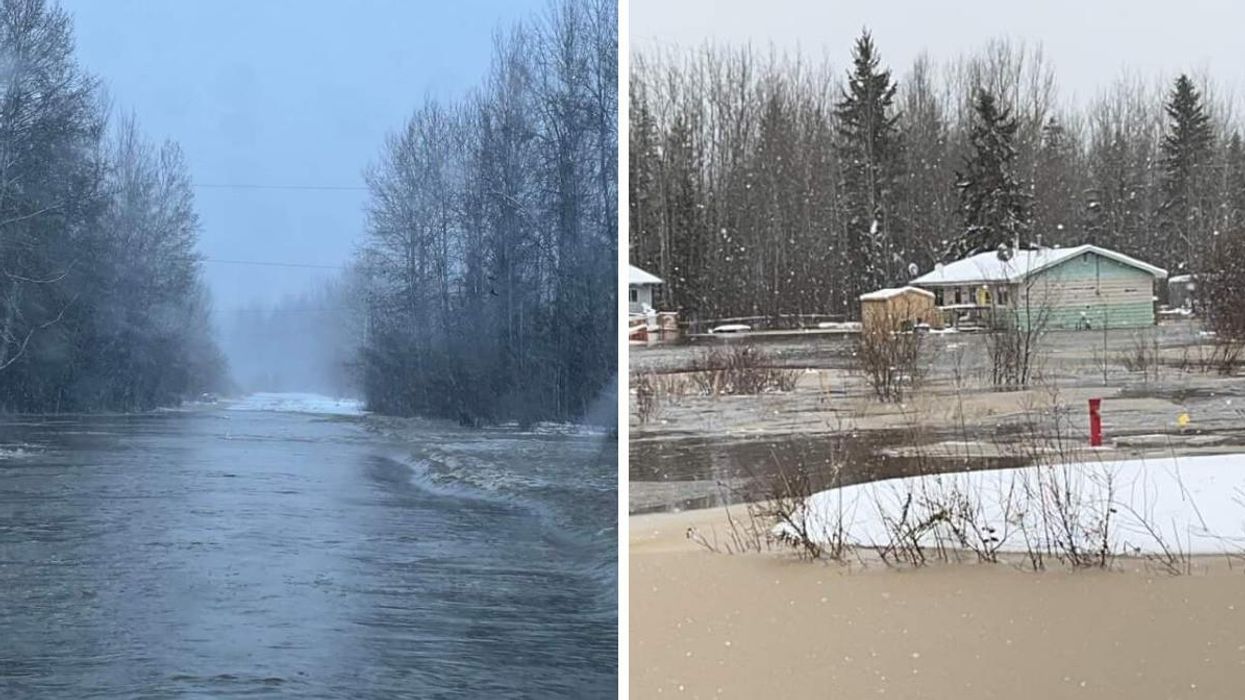Massive Flooding In Northern Alberta Forces Almost 1000 People To Evacuate (VIDEO)
A mandatory evacuation order has been issued.

Flooding in Chateh, Northern Alberta. Right: Flooding in Chateh, Northern Alberta.
Almost 1,000 people have been forced to evacuate their homes after severe flooding hit the community of Chateh in Northern Alberta.
Flooding in the region has been blamed on heavy rain, combined with snowmelt, leading to a mandatory evacuation notice being issued to the residents of the Dene Tha’ First Nation at Chateh.
Rob Williams, a spokesperson for Alberta's Ministries of Municipal Affairs, Indigenous Relations and Transportation, said "around 940 people have been affected by the flooding."
Williams said there are three states of local emergency for Chateh in the Dene Tha’ First Nation, Little Red River Cree Nation (John D’or Prairie) and Paddle Prairie Metis Settlement.
Residents are being evacuated to High Level and approximately 676 evacuees have been registered there so far. Some may be sent to Peace River and other regional communities, Williams added.
"Flood protection barriers – Tiger Dams – are being set up around housing in the community and Beaver First Nation is providing additional aid. A First Nations Field Officer is on-site assisting the emergency management team," he said.
A mandatory evacuation order was issued on Sunday, May 8 for residents of the Dene Tha’ First Nation at Chateh, which is almost 850 kilometres northwest of Edmonton.
The notice said road access was "deteriorating rapidly" and residents were urged to head to Chateh Health Centre to be assigned shelter.
Around 20-30 homes have been evacuated in Paddle Prairie Metis Settlement, Williams added.
An advisory issued by Alberta Environment and Parks said from Thursday, May 5 to Monday, May 9, between 50 and 120 millimetres of rain had fallen in northwestern Alberta between Grande Prairie and west of High Level.
Water levels in the Sousa Creek Basin and the community of Chateh are fluctuating due to snowmelt and are expected to remain high for the next two days. Once the water levels peak it will take a further 6 to 7 days to fall below the flood thresholds, it added.
However, Alberta Environment and Parks said no significant levels of rain are expected in the next five days.